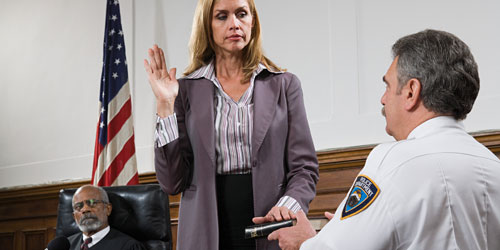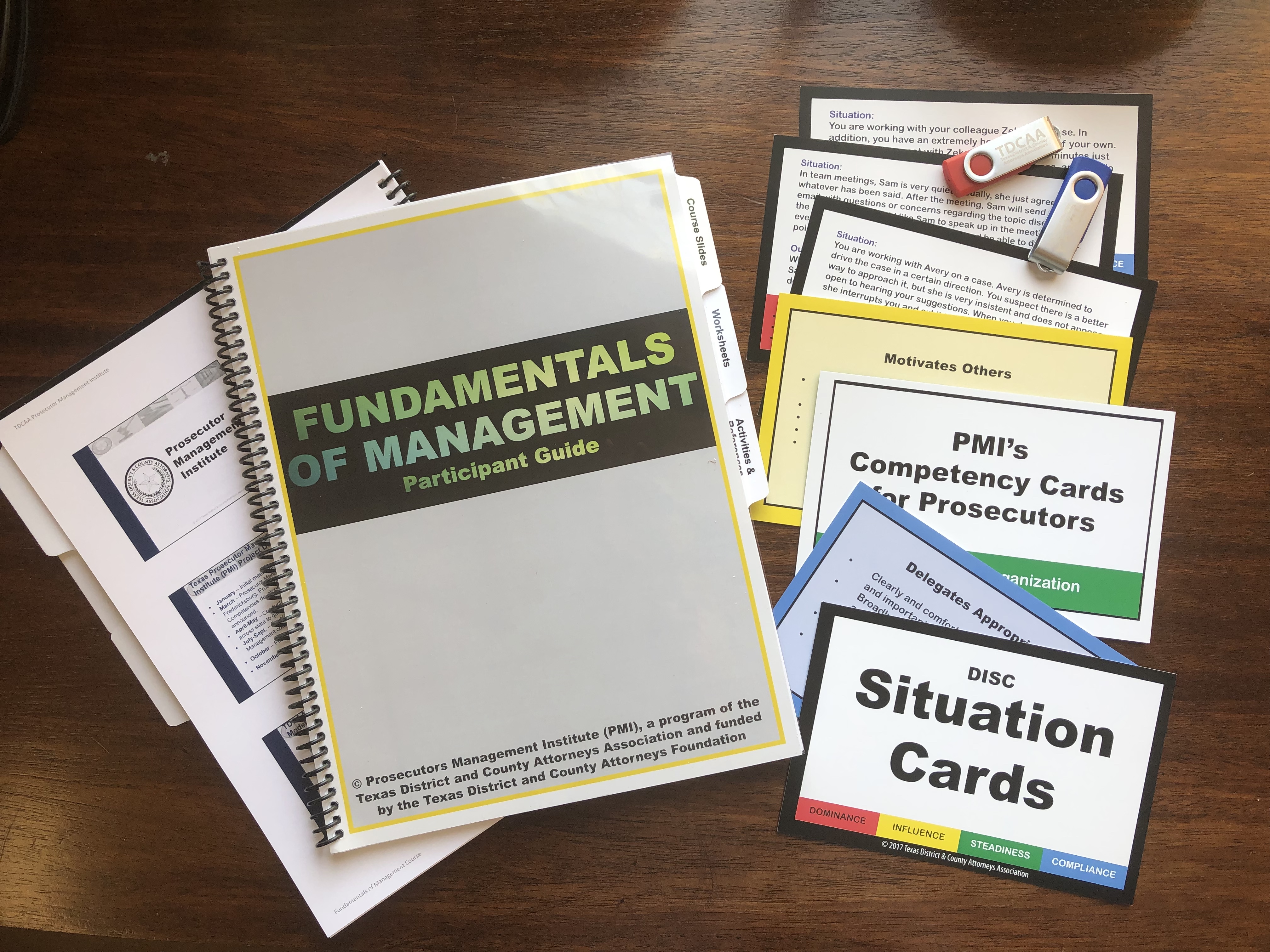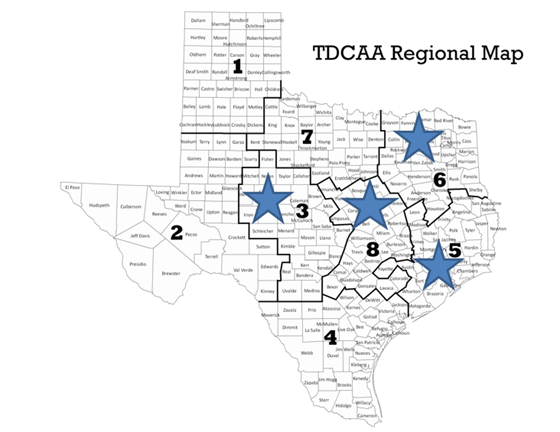The new year has kicked off with a bang—read on for information about the impending sexual assault audit survey, domestic terrorism, ethics, pro tem appointments, interim legislative hearings, and more.
An important message from our friends at the State Auditor’s Office
As required by House Bill 1, which was approved during the 2019 Texas legislative session, the State Auditor’s Office (SAO) is conducting an audit to examine the investigation and prosecution processes for reported adult and child sexual assaults in Texas during calendar years 2014 through 2018. As a part of that audit, we are conducting a survey to collect information from district attorneys’ offices about their process for prosecuting sexual assault crimes. The survey includes questions on collecting information about the district attorneys’ offices, the prosecution process, and feedback about opportunities for and challenges to improving the sexual assault prosecution process.
A link to a Web-based version of the survey will be sent to all felony prosecutor offices via email on Monday, February 10, 2020, and it will be accessible through Friday, March 20, 2020. We anticipate the survey will take about 20 minutes to complete. SAO audit staff will be available to answer any questions about the survey and may periodically follow up with your office to ensure that we have received your survey responses.
Please note that the responses to the survey are considered an audit working paper of the SAO and are confidential and exempt from public release under the Texas Public Information Act (Texas Government Code, Section 552.166). Your responses to the survey will be compiled and analyzed along with responses received from other district attorneys’ offices. Those responses will be summarized at a statewide level and included in the SAO’s final audit report that will be released no later than November 1, 2020. If your office has any questions about the survey, please contact us at [email protected] or call Thomas Mahoney at 512-936-9500.
Domestic terrorism
Lubbock County CDA Sunshine Stanek has been appointed to the Governor’s Domestic Terrorism Task Force. She is currently working on a multi-agency collaborative effort to propose language creating a state domestic terrorism statute which would address threats and other substantial steps towards attacks of mass violence. If you or people in your office have given any thought to this problem or have ideas you would like to share with her, please contact her at [email protected] or (806) 775-1105.
Ethics opinion comments sought
As part of its new practice of posting proposed ethics opinions for public comment before issuing those opinions, the Texas Supreme Court’s Professional Ethics Committee (which writes ethics opinions for members of the State Bar of Texas) is seeking input on proposed opinion no. PO-20-2, which concerns the disclosure and discovery duties of a criminal defense attorney who possesses evidence of a crime. To review the question and proposed answer and to submit a comment, use this link. (And note that a similar solicitation has been sent to TCDLA as well.)
Prosecutor pro tem appointments
In case you missed it, the Office of Attorney General issued a reminder earlier this month related to the appointment of their lawyers in local cases; the full text of the message is available on our website here.
Interim committee hearings
The looming primary elections have the attention of most legislators right now, but committee hearing notices are beginning to trickle out from Austin. Here are current postings that might interest some of you (click on the title link for more details):
House Committee on Ways & Means
Wednesday, February 5, 2020, at 10:00 a.m.
Capitol Extension Room E2.012, Austin, TX
Topics: Use of third-party tax collection firms by local governments
House Committee on Higher Education
Tuesday, February 11, 2020, at 11:00 a.m.
Capitol Extension Room E2.026, Austin, TX
Topics: Sex crimes on campus; hazing
Senate Committee on Veterans Affairs & Border Security
Monday, February 24, 2020, at 1:00 p.m.
Harlingen Convention Center, Harlingen, TX
Topics: Veteran treatment courts, veteran health care, and veteran mental health
Senate Committee on State Affairs
Wednesday, February 26, 2020, at 10:00 a.m.
Senate Chamber, Austin, TX
Topics: Human trafficking; Second Amendment; personal property theft
Senate Committee on Transportation
Wednesday, February 26, 2020, at 10:00 a.m.
Capitol Extension Room E1.016, Austin, TX
Topics: Traffic fatalities (including by intoxication); monitor new legislation
If after reading a posted notice online you still have questions, contact Shannon for more information.
Crimes Against Children Conference
Online registration for our Crimes Against Children Conference is now open. The course will be held in mid-April at the Omni Westside Hotel in Katy, just west of Houston. For more information or to sign up online, visit https://www.tdcaa.com/training/crimes-against-children-conference/.
Quotes of the Month
“They legalized a plant that has a distinction that’s invisible to everyone
except a machine. [My client] got searched because they smelled marijuana.
Well, they can’t smell marijuana anymore. They can smell cannabis.”
—Adam Tisdell, a criminal
defense attorney in Amarillo representing a man who spent a month in federal detention for transporting more than three thousands
of pounds of legal hemp initially thought by the arresting officers to be
illegal marijuana (until crime lab reports eventually proved otherwise). His
client now intends to sue for wrongful arrest.
“What the hemp bill has done is to create change at the local level in Texas; it’s got people talking about cannabis not in a scary way but in a practical way that highlights just how harsh and unreasonable our current policies are.”
—Heather Fazio, director of Texans for Responsible Marijuana Policy, in an article discussing efforts of some Austin city council members to ban local police from using city funds for lab testing of suspected marijuana.
“I was surprised by news reports today indicating there may be support for abandoning the long-time democratic practice of partisan election of judges by the Texas Commission on Judicial Selection …. Texans feel strongly about voting for their judges. The commission will need to make a compelling argument to the people and legislators to change the current system. I do not believe that support exists today.”
—Lt. Gov. Dan Patrick (R-Houston), in a press release raining on the parade of anyone who wants to move away from the popular election of judges in Texas.
“Since about 2008, 2009, the instances in which AGs have refused to defend state laws has really increased pretty dramatically, and I think that’s a reflection of increased polarization both in American society in general, as well as amongst the AGs specifically.”
—Paul Nolette, associate professor at Marquette University, commenting upon Attorney General Ken Paxton’s refusal to represent the Commission on Judicial Conduct, which is being sued for sanctioning a judge who refuses to officiate over same-sex marriages.
“It is quite unfortunate that so few people do show up for something that was considered to be such an important aspect of our liberty.”
—Charles “Rocky” Rhodes, constitutional law professor at South Texas College of Law, commenting upon a recent Houston Chronicle story on the low jury summons appearance rates in Harris County (just 22 percent in 2019).
“I think small towns like [Channing] are going to finally dry up. People want to be where the action is, seems like. I don’t like action. I like the slower pace.”
—Bob Cates, retired Panhandle cowboy and caretaker of the XIT Ranch general office (and unofficial museum) in Channing (Hartley County), Texas.
“The things you see as a prosecutor, you can’t un-see. The way you recover from that is through hope. My job is to comfort and offer encouragement, and to suggest to them there is hope out there.”
—Walt Merrell, Covington County (AL) DA, on his new role as chaplain for the Alabama District Attorneys Association, a position created to help prosecutors in that state deal with the trauma and heartbreak they encounter on their jobs.
###




